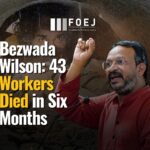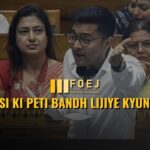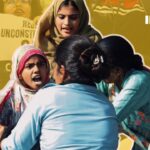The Citizenship (Amendment) Act, 2019 (CAA), ratified by Parliament in 2019, was officially announced by the Union home ministry on March 11, thereby putting the law into operation. This notification comes just before the Lok Sabha polls, fulfilling a pledge outlined in the BJP’s 2019 manifesto.
The Citizenship Amendment Act (CAA) grants Indian citizenship eligibility to illegal migrants who are Hindus, Sikhs, Buddhists, Jains, Parsis, and Christians (i.e., non-Muslims) from Pakistan, Afghanistan, and Bangladesh, provided they arrived in India before 2015. However, it overlooks persecuted minorities from other regions such as Tibet, Sri Lanka, and Myanmar, as well as Hazaras, Ahmadis, Rohingyas, and political dissenters who face persecution in Pakistan.
This legislation marks the first instance of religion being used as a criterion for Indian citizenship, violating Constitutional secular principles and infringing upon Articles 13, 14, 15, 16, and 21, which guarantee the right to equality, equality before the law, and non-discriminatory treatment by the Indian State.
Furthermore, the CAA exclusively targets illegal migrants. Citizenship through naturalization or registration is not an option for them. Moreover, there is no provision for a Muslim declared an ‘illegal migrant’ to attain citizenship in India. Those Muslims lacking the necessary documentation to prove their citizenship in a nationwide NRC could be labeled as ‘illegal migrants’.
Critics express concern that the combination of the Citizenship Amendment Act (CAA) and the proposed National Register of Citizens (NRC) could result in discrimination against India’s 200 million Muslims, constituting the world’s third-largest Muslim population. There are apprehensions that the NRC, when coupled with the CAA, might lead to the disenfranchisement of Muslims lacking proper documentation in border regions.
Protests
Protests emerged in the eastern state of Assam and the southern state of Tamil Nadu on March 11, though no incidents of violence or clashes with security forces were reported.
Activists representing various organizations in Assam, such as the All Assam Students’ Union (AASU), set ablaze copies of the law, demanding a statewide shutdown on Tuesday.
Similar protests are being orchestrated by different student factions in neighboring states like Meghalaya and Tripura. While some of these groups oppose the CAA on the grounds of perceived discrimination, many object to granting citizenship status to foreign nationals, regardless of the law’s alleged discriminatory nature.
In Chennai, the capital of Tamil Nadu, demonstrators organized a candlelight march on March 11 to voice their opposition to the law.
The Communist Party of India (Marxist), ruling the southern state of Kerala, has also called for state-wide protests on March 12. Chief Minister Pinarayi Vijayan expressed unity against what he referred to as a “communal and divisive law.”.
Authorities in the national capital, New Delhi, where protests were centered in 2019, are on alert for potential violence. Measures include prohibiting unlawful gatherings and increasing police presence in sensitive areas.
Who Will be Affected Other than Muslims?
Women constitute the most vulnerable group, with over two-thirds of those affected being women. Their vulnerability stems from various factors, including:
Name changes post-marriage, including alterations to first names in some communities,.
Lack of educational opportunities leads to document-related challenges.
limited inheritance rights and property ownership.
Relocation following marriage to different villages or towns.
Furthermore, marginalized groups such as nomads, Adivasis, and the LGBTQIA community face additional hurdles due to their exclusion from government documentation efforts.
The situation is particularly dire for the 21 crore Indian Muslims, many of whom are economically disadvantaged, like SC/ST communities, and may lack proper documentation, making them vulnerable to the combined impact of the CAA and NRC. SC (approx. 23 crore Indians), ST (approx. 12 crore Indians), and OBC (approx. 55 crore Indians).
Other vulnerable groups include orphans, abandoned children, migrant laborers, illiterate individuals (27 crore), and people with disabilities. Many in these groups lack necessary documents, face difficulties due to discrepancies in their names across different records, or have lost documents during natural disasters or over time.
At least 42% (51.5 crore) lack birth certificates, including elderly individuals born in an era when births were often not registered, as well as those born in rural areas where registration remains low. Additionally, government records lost to calamities like floods or destruction by pests further complicate efforts to obtain duplicate documents.









